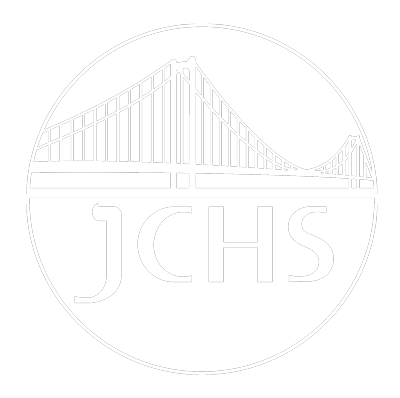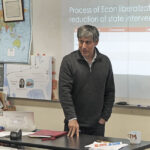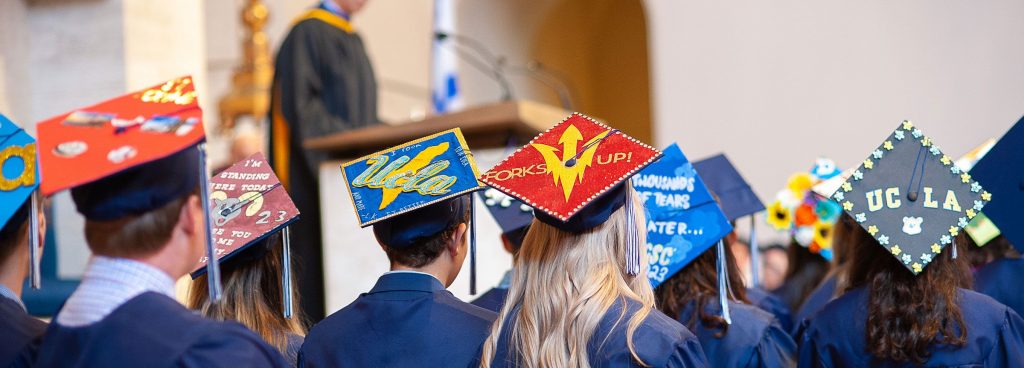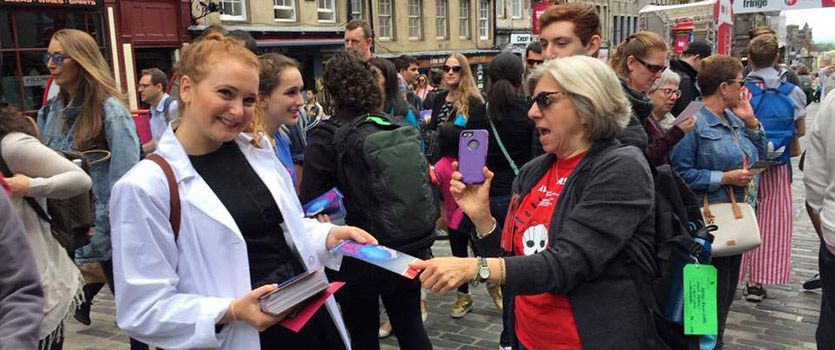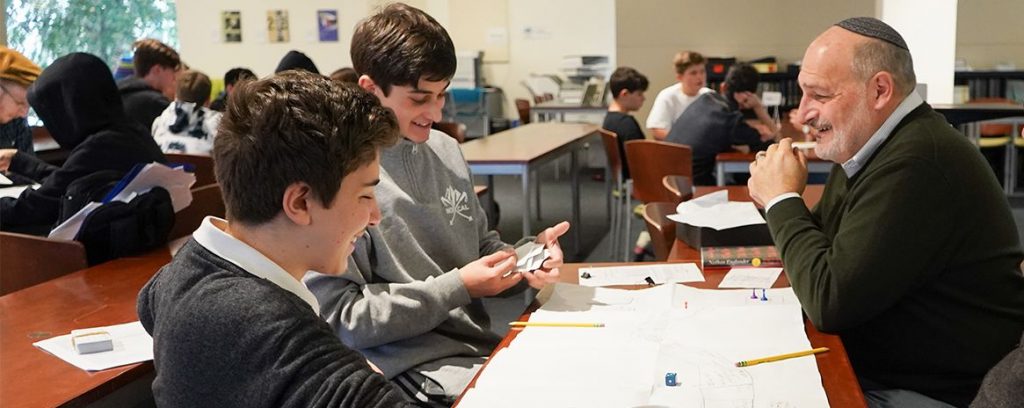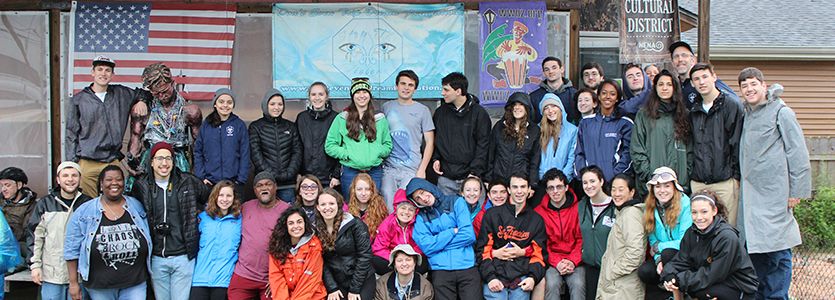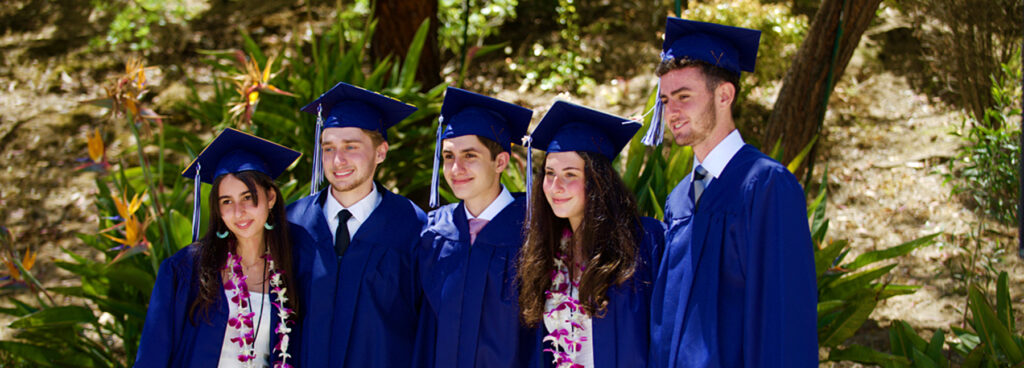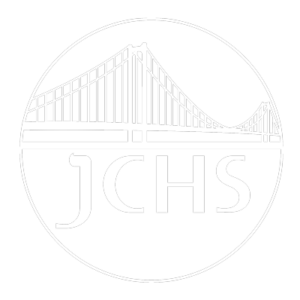Humanities
JCHS Humanities courses encourage the intellectual and emotional growth of our students, supporting them in becoming sophisticated thinkers, confident writers, careful readers, informed citizens, and effective leaders.
The courses cultivate critical and creative thinking and inspire students to generate empathy and compassion for human experience in all its variety. English courses present students with appropriately challenging texts that contain original thinking, innovative stylistic choices, and masterful prose. The articles, essays, poems, plays, novels, and memoirs often expose students to perspectives and experiences beyond those familiar to them. These published works also illustrate the various components of composition such as rhetorical devices, tone, evidence, structure, organization, syntax, and grammar.
Our history courses engage students in careful reading of primary sources, interdisciplinary connections, and voices of both first person histories and officially sanctioned narratives. Students will learn to discern bias, assess cause and effect, and compare recurrent historical themes. We focus not only on economic and political history but on socio-cultural trends as well.
The Humanities Department’s mission is to see each student develop their skills in the following areas:
- Reading: Analyzing texts critically; reading closely; identifying symbolism, thematic elements, and rhetorical devices; analyzing argument and evidence; identifying tone and devices; understanding poetic and dramatic devices; identifying bias and perspective.
- Writing: Identifying and articulating a thesis in a paragraph or essay; supporting a thesis with evidence; writing analytic and persuasive essays, short stories, and poems; using mentor texts; understanding rules of grammar.
- Research: Defining and refining a research question; finding appropriate research from books, journals, and the Internet; using databases; quoting and citing others’ work appropriately; developing note-taking and bibliography skills.
- Other: Historical reasoning; honing effective oral presentation skills; working collaboratively with peers; understanding and responding respectfully to different points of view.
Click on any course name below to learn more.
English Core Courses
Subject Area: English
Open to: 9
In English 9, students develop a rich foundation for the study of world literature, with an emphasis on non-western literature. They encounter a range of engaging 20th and 21st-century texts representing several literary genres and cultures, including Africa, Asia, and the Caribbean. These texts include the graphic novel Persepolis, the Korean and Japanese set multigenerational saga Pachinko, and the multi-perspective Haitian novel The Dew Breaker, among others. As they study contemporary world literature, students refine their critical reading abilities by learning to recognize textual patterns and analyze writers’ choices. This allows students to challenge normative assumptions by engaging with non-western experiences while learning to identify and explain the historical and cultural structures and systems that have impacted social inequality. Throughout the course, students will build their composition skills, including crafting clear arguments and using evidence effectively. Students culminate their year by participating in a mock trial where a character from The Dew Breaker is put on trial, with students arguing as the defense or the prosecution. While the emphasis will be on analytical writing, students will also have the opportunity to work on creative projects, such as visual representations as analysis of characters and themes, as well as a “choose your own adventure” project where students can create art pieces, playlists, or write their own short stories.
Subject Area: English, American Studies
Open to: 10
In this course, students will study American Literature from the Colonial period through the 20th century. Over the course of the year, students will read and analyze texts ranging from Native American trickster tales, to fugitive slave narratives by Frederick Douglass and Harriet Jacobs, to influential American novels like F. Scott Fitzgerald’s The Great Gatsby. We also explore short fiction that thematizes women’s struggle for societal reforms at the end of the 19th century, including “The Yellow Wallpaper” by Charlotte Perkins Gilman, and learn to analyze poetry through close study of Emily Dickinson and Langston Hughes. Students will build on their knowledge of literary genre and form, and deepen their analytical writing abilities by writing frequent argumentative essays which will go through extensive drafting and revision. Several units will be taught in coordination with U.S. History and AP U.S. History, enabling students to learn about literature with a richer sense of historical context. The final project of the year brings together American Literature and US History curricula by staging a mock school board meeting. Students take on the role of a parent, student, or teacher to argue for or against the inclusion of controversial texts in the JCHS curriculum.
Subject Area: English
Open to: 11
This writing-intensive course provides juniors with the tools to become more confident, proficient, and creative academic writers. Students will work on a variety of writing assignments in a range of genres, all designed to help them cultivate their ability to make and support persuasive arguments. From deconstructing opposing arguments, to writing their own op-eds, magazine features, and book reviews, students will be able to move beyond the five-paragraph essay and engage in meaningful, real-world analytical writing formats. Readings will include essays and features about key debates in contemporary culture, Michelle Alexander’s The New Jim Crow, and the classic novel Frankenstein. In conjunction with their Biology class, students will read Frankenstein and complete a synthesis essay exploring the ethical ramifications of creating human life. Students will also study the elements of the personal essay in the second semester, and cultivate their own writing style as they work on crafting their college essays. Over the course of the year, students will compose a minimum of six pieces, all of which will go through an extensive drafting and revision process.
Subject Area: English
Open to: 11
The AP English Language and Composition course focuses on the development and revision of evidence-based analytic and argumentative writing and the rhetorical analysis of both fiction and nonfiction texts, from writers such as Abraham Lincoln, Frederick Douglass, Jesmyn Ward, Jeanette Walls, and Ta-Nehisi Coates. Through frequent writing assignments, students evaluate, synthesize, and cite research to support their arguments. Additionally, they read and analyze rhetorical elements and their effects in nonfiction texts from a range of disciplines and historical periods. Students will read a wide variety of non-fiction texts—from newspaper editorials to philosophy, to literary non-fiction, to memoirs, to speeches—all with the intent of discovering how an author crafts an argument. In conjunction with their Biology class, students will read Frankenstein and complete an integrated project exploring the ethical ramifications of creating human life artificially. Advancing their mastery of all of the elements of powerful composition, students will be challenged to develop a more versatile and bold writing style, learning to adapt their writing voices to meet the demands of genre, audience, and occasion.
Please Note: Students enrolling in AP Language and Composition will be required to complete the Summer Assignment consisting of reading two memoirs and completing a writing assignment by midnight August 11, 2024. Students who do not complete the Summer Assignment by August 11 will be enrolled in Writing and Rhetoric: Making the Case.
Subject Area: English
Open to: 12
Through texts such as Ken Kesey’s One Flew Over the Cuckoo’s Nest, Trevor Noah’s Born a Crime and Tim O’Brien’s The Things They Carried, along with various short stories and films, students in Senior Seminar will examine the nature of evil. We will considers questions like: what is the nature of evil? How does literature make sense of the harm we do to one another? When is that harm a function of society? Why are we drawn to evil characters in literature and film? Senior Seminar will engage students in close textual analysis, literary discussion, academic composition, formal debating, and creative presentations. We will move away from the formulaic essay structures, take more risks, and develop a personal voice.
At key moments, this course is integrated with Senior Seminar: Issues in Jewish Thought. Some course material has been synchronized to offer powerful moments of connection and integration. There will be assessments (both written and performance-based) integrated with Jewish Thought throughout the year, including a paper that explores the origin of evil from both theological and literary perspectives.
Subject Area: English
Open to: 12
As the title character, Sula, proclaims in Toni Morrison’s 1973 novel: “I don’t want to make somebody else. I want to make myself” (91). This course will explore narratives of self-fashioning in both fiction and poetry, and will special attention to moments of tension between individual desires and cultural norms. Through reading novels ranging from canonical 19th texts like Gustave Flaubert’s Madame Bovary to modern classics like Toni Morrison’s Sula, students learn how use close-reading techniques to build persuasive arguments about the ways writers use language and literary devices to create meaning. The study of poets ranging from Emily Dickinson to Terrance Hayes will equip students with an understanding of the subtle ways meaning can shift and evolve over the course of a short lyrical poem. In preparation for the Advanced Placement exam, students will become confident writing thesis-driven, tightly organized, analytical essays in a limited amount of time.
This course is integrated with Senior Seminar: Issues in Jewish Thought. In both courses, students will explore common philosophical and ethical themes such as tradition vs. modernity, the problem of evil, and the importance of memory. There will be integrated assessments (both written and performance-based) throughout the year.
Please Note: Students enrolling in AP Literature will be required to complete the Summer Assignment – which involves reading one novel, one book of criticism, and writing an essay – by midnight August 11, 2024. Students who do not complete the Summer Assignment by August 11 will be enrolled in Senior Seminar in Literature and Composition.
History Core Courses
Subject Area: History, American Studies
Open to: 10
This survey course in United States history will examine the major historical forces and events which have shaped our country. Students will review both early and more contemporary American history and examine significant factors that continue to have relevance to our society. Students will learn to employ primary sources, secondary texts, and multimedia offerings to gain a profound understanding of American history and culture. The course will focus on developing students’ abilities to think critically, write clearly articulated and well-substantiated arguments, and develop the confidence and skills to participate in class discussions and debates. Students will finish the year by writing an integrated research paper in conjunction with their American Literature course, which will require students to utilize research skills, make clear connections between history and the present, and write cogently and convincingly. This course integrates with the American Literature course to develop a curriculum in which literature supports and reinforces studies in United States history.
Subject Area: History, American Studies
Open to: 10
AP United States History is designed to be the equivalent of a two-semester introductory college or university United States history course. Students will investigate the content of U.S. History for significant events, individuals, developments, and processes and use and strengthen the same thinking skills and methods employed by historians when they study the past, including analyzing primary and secondary sources, making historical comparisons, chronological reasoning, and argumentation. The course is structured around seven themes (American and National Identity; Migration and Settlement; Politics and Power; Work, Exchange, and Technology; America in the World; Geography and the Environment; and Culture and Society) that students explore throughout the year in order to make connections among historical developments in different times and places. A premium will be placed on identifying and contextualizing modern day equivalents to historical events and developments. The emphasis of this course will be to help students develop clear, concise analytical essay writing skills.
Please Note: Students enrolling in AP US History will be required to complete the Summer Assignment – which involves reading the first three chapters of the textbook and writing responses to short answer prompts – by midnight August 11, 2024. Students who do not complete the Summer Assignment by August 11 will be enrolled in US History.
Humanities Elective Courses
Subject Area: History
Open to: 11, 12
The AP Art History course explores such topics such as the nature of art, its uses, its meanings, art making, and the responses to art. Through investigations of diverse artistic traditions of cultures from prehistory to the present, the course fosters in-depth and holistic understanding of the history of art from a global perspective.
Students learn and apply skills of visual, contextual, and comparative analysis to engage with a variety of art forms, constructing understanding of individual works and interconnections of art making processes and products throughout history. During the course students will engage with selective hands-on processes to develop further appreciation of design, craft, and technique. Visits to local art museums, and significant works of architecture are also an essential part of the course. Students are expected to take the AP Art History exam at the end of the year.
Please Note: Students enrolling in AP Art History will be required to complete the Summer Assignment. Students who do not complete the Summer Assignment will need to enroll in an alternate elective.
Subject Area: History
Open to: 11, 12
The AP course in Comparative Government and Politics introduces students to fundamental concepts used by political scientists to study the processes and outcomes of politics in a variety of country settings. The course aims to illustrate the rich diversity of political life, to show examples of existing institutional systems, to explain differences in processes and policy outcomes, and to communicate to students the importance of global political and economic changes. Comparison assists both in identifying problems and in analyzing policy making. Additionally, the course covers the major concepts that are used to organize and interpret specific countries and their governments. Six countries form the core of the AP Comparative Government and Politics course: China, Great Britain, Iran, Mexico, Nigeria, and Russia. By using these six countries, the course can move the discussion of concepts from abstract definition to concrete example, noting that not all concepts will be equally useful in all country settings. (Collegeboard.org)
Please Note: Students enrolling in the AP Comparative Government and Politics course will be required to complete the Summer Assignment – which involves defining key vocabulary terms and finding and analyzing several articles relating to the six “course countries” – by midnight August 11, 2024. Students who do not complete the Summer Assignment by August 11 will need to enroll in an alternate elective.
Subject Area: History
Open to: 11, 12
The AP European History course focuses on developing students’ understanding of European history from approximately 1450 to the present. The course has students investigate the content of European history for significant events, individuals, developments, and processes in four historical periods, and develop and use the same thinking skills and methods (analyzing primary and secondary sources, making historical comparisons, chronological reasoning, and argumentation) employed by historians when they study the past. The course also provides five themes (interaction of Europe and the world; poverty and prosperity; objective knowledge and subjective visions; states and other institutions of power; and individual and society) that students explore throughout the year in order to make connections among historical developments in different times and places.
Please Note: Students enrolling in AP European History will be required to complete the Summer Assignment – which involves using two pre-course readings to write short answer responses – by midnight August 11, 2024. Students who do not complete the Summer Assignment by August 11 will need to enroll in an alternate elective.
Open to: 11, 12
Psychology: while one might think it’s all psychoanalysis and diagnosis, this science is much more multifaceted! In this fast-paced course, we’ll be exploring a multitude of ideas, theories and methods surrounding the scientific study of behavior and mental processes. Units will include the biological bases of behavior, sensation and perception, and learning, and explore multiple branches of psychology like cognitive, developmental, clinical, and social. We’ll explore the building blocks of psychology through reading, discussion, writing, and analyzing data from psychological research studies. You’ll learn how to connect psychological concepts and theories to real-life scenarios, and how to to understand and interpret research studies and their corresponding data. Students who are interested are highly encouraged to browse.
Please Note: Students enrolling in AP Psychology will be required to complete the Summer Assignment – which involves using two pre-course readings to write short answer responses – by midnight August 11, 2024. Students who do not complete the Summer Assignment by August 11 will need to enroll in an alternate elective.
Subject Area: History
Open to: 11, 12
Prerequisite(s): US History or AP US History
In this seminar style class, students will examine the impact of the most foundational document in our nation, the Constitution, on important contemporary issues. Special attention will be given to major Supreme Court cases that have challenged and transformed our understanding of the Constitution and our civil rights. We’ll closely examine cases centered around freedom of speech, gun control, the rights of women and minorities, the right to privacy, and the rights of the accused. Students will also learn about, and engage in, the process of judicial review and investigate different kinds of Constitutional interpretation. We engage in several different simulations throughout the year in which students will have the opportunity to think, write, and act as either Supreme Court Justices and lawyers.Through other learning activities like discussion, research, and writing, students will gain an in-depth understanding of the governing document of our country, how it has shaped our history, and how it continues to impact our country today. In addition to using the assessment formats used by the College Board on the AP Exam to measure student learning, understanding of the material will also be demonstrated through debates, socratic seminars, position papers, and simulations. The post-exam project challenges students to improve our own system of government by applying what they have learned in the course and presenting proposed Amendments to the United States Constitution.
Subject Area: English
Open to: 10, 11, 12
Storytelling–specifically strong, well crafted, entertaining narratives–help us make sense of the world. From oral story traditions to TikTok, good stories help us better understand ourselves and frame our relationships with the world around us. The ability to tell a good story is fundamental to vibrant journalism, vivid creative writing, and engaging imaginative multimedia features. In this course, we will explore how to craft compelling narratives in a myriad of ways: through short fiction, creative nonfiction, news reportage, photographic essays, and other media.
Subject Area: History
Open to: 11, 12
Cross-listed with Jewish Studies
The history of the Israel-Palestinian conflict is complex. First, because there have been many turning points that have led to the current status quo, and second because each of the primary factions has developed a certain framing of facts and telling of history to justify their actions.
This course aims to uncover these various historical narratives with the hope of providing students with an understanding of the complexities at the root of the conflict, and how these divergent narratives continue to influence the ways Palestinians and Israelis justify their political positions. Students will leave the course with an understanding of the core underlying issues and an appreciation of the variety of resources and perspectives informing the discourse about the conflict in history and today. Through an exploration of the region’s demographics we will investigate the privileges and disabilities available to different populations. To support deep student learning, our course will be framed by dialogue techniques that support open-hearted engagement with diverse narratives.
Please Note: As a cross-listed course, students may choose to count this course towards either their Jewish Studies or Humanities elective graduation requirement.
Open to: 10, 11, 12
Have you noticed that contemporary culture is predominantly visual? From our phones to Zelda or Hollywood’s latest hit, we are saturated by images everywhere we look. Isn’t it time to go beyond the surface and learn how to “read” and analyze visual culture just as we read and analyze texts? In this class, we will study maps, paintings, photography, film, TV, video games, comic books, advertisements, and other forms of visual communication. We will examine the sociopolitical context that informs these images, understand their means of production, and reflect on how they shape our culture and ourselves. Our learning journey will focus on representations that allow us to reflect, particularly, on the way images shape our conversations about social justice and the environment, guided by Tzedek principles. For example, how does Instagram contribute to social exclusion? How does Zelda dismantle structures of oppressive power? How does Star Wars represent our own planet’s environmental struggles? You can think of this class as similar to an English class, with some readings here and there, engaging discussions, and assessments such as presentations, essays, and creative visual projects.
Subject Area: History
Open to: 9
In this world history course, students will discover the pulse of major societal developments and unravel the intricate web of interconnectivity that defines our contemporary world. From the origins of our species in Africa, the emergence of complex societies in Ancient Mesopotamia and Egypt, to the formation of powerful states across the globe, we will consider the forces that have shaped history. Organized around themes like ‘Innovations,’ ‘Empires,’ and ‘Global Webs,’ each unit will explore concepts and case studies from the past while drawing valuable parallels to the present. This isn’t just a history class; it’s a dynamic adventure where you’ll build essential skills like active reading, research, and critical thinking and writing skills.
Please Note: This is an introductory course open to all 9th graders, which may be taken in lieu of Foundations of Computer Science.
Subject Area: English
Open to: 11, 12
Cross-listed with Jewish Studies
“America is not a belief, nor a style, not a conception, nor a way in which to think,” wrote the Yiddish American poet Nahum Minkov, “America is a ‘thing’…We make that thing that’s called America, we are that thing. Without us she is—nothing.” Between 1880 and 1924, more than three million Jewish immigrants arrived in the United States from eastern Europe, the majority via New York’s Ellis Island. This course examines the emergence of a distinctly Jewish American literature and literary culture in New York City that was born and grew from this mass immigration over the course of the twentieth-century and into the present day. Through poetry and short stories, novels and short essays, we will begin mapping Jewish New York from the perspective of writing. Some key themes of the course include: narratives of arrival and longing for the “old country”; shifting Jewish racial identities and Jewish American assimilation; Jewish multilingualism and the American melting pot; Jewish American survivor’s guilt and responses to the Holocaust from afar, among others. Students will be asked to respond to a wide range of literary texts through a mix of critical and creative writing, oscillating between wearing the hat of the critic-reader and the hat of the creative-writer.
Please Note: As a cross-listed course, students may choose to count this course towards either their Jewish Studies or Humanities elective graduation requirement.
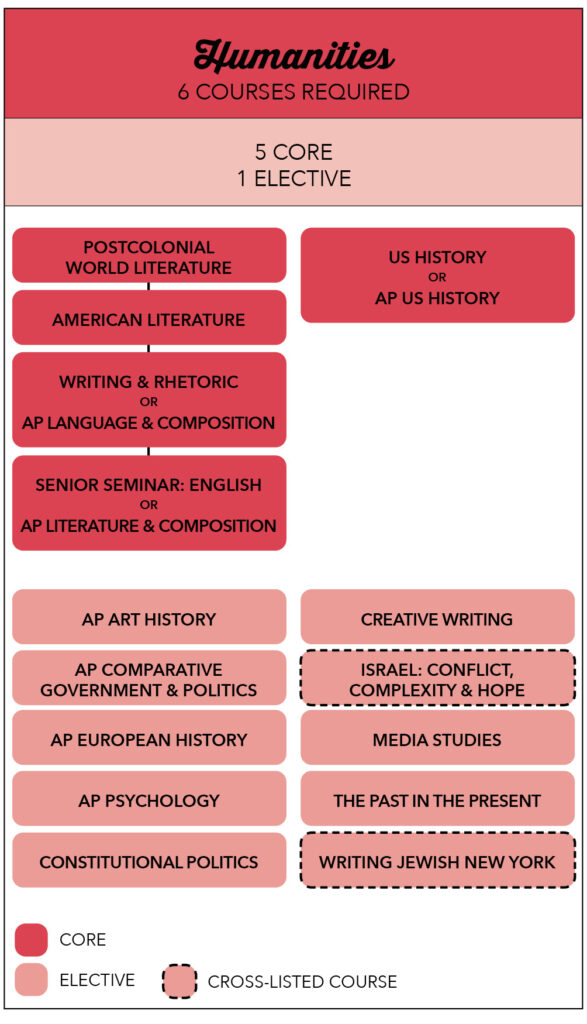
Click here to view the complete Curriculum Map
